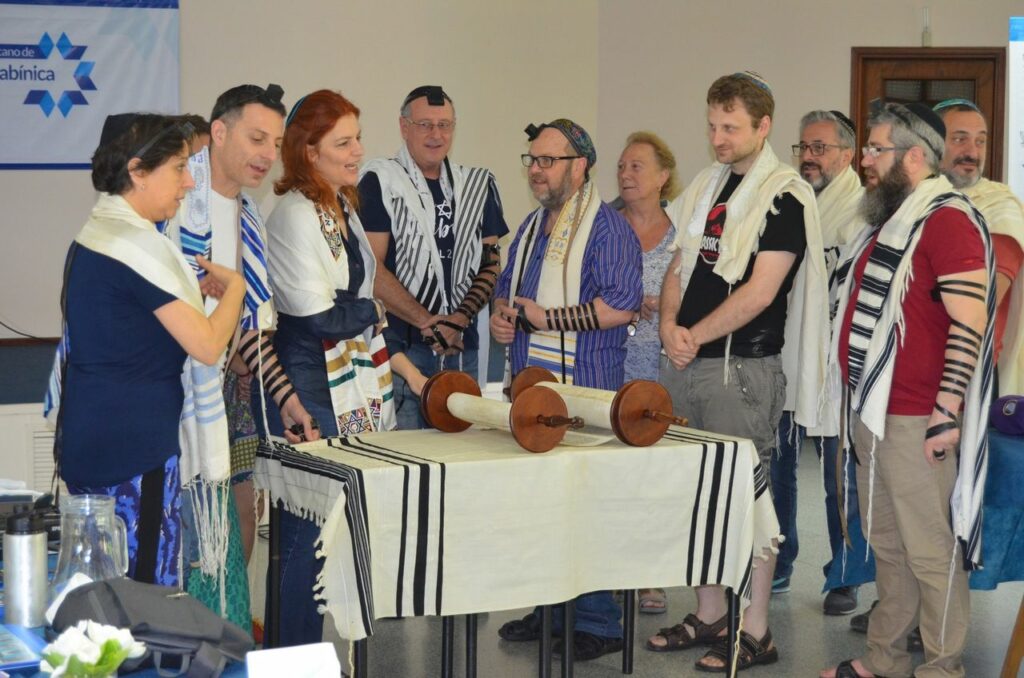A year after the first face-to-face meeting of our rabbinical students, we can only be excited by the achievements of the project that was planned, driven and implemented with the clear objective of ensuring Jewish continuity in the region. Today, with 3 kinussim already concluded, we can say that expectations have been largely overcome.

When you begin to cross a path under construction, each step, each stage requires us a pause to evaluate the course.
Today, a year after the first face-to-face meeting of our rabbinical students, we can only be excited by the achievements of the project that was planned, driven and implemented with the clear objective of ensuring Jewish continuity in the region. Today, with 3 kinussim already concluded, we can say that expectations have been largely overcome.
Professors invited to Kinus, prof. Daniel Berbedes, Rabbi Lea Muehlstein (President of Arzenu), Dr. Emmanuel Taub, along with Dean and Rabbi Damian Karo provided the students, respectively, with an oratory seminar; a political vision of the Reform Movement within the framework of the representation of the Jewish people; debates in depth with themes of Philosophy and Mysticism; Mekorot studies, Reform ideology and a brainstorming of the expected profile of who will receive Institute’s ordination.
The lighting of the last candle of Hanukkah during the meeting was attended by the President of the Institute and Arzenu Argentina, Ricardo Rotholtz; Vice-President, Diana Akawie; the Executive Member of the WUPJ and President of the Templo Libertad, Enrique Jurkowski; the legal counsel, Lilí Grinberg; and the President of SIBRA and representative of Arzenu Brasil, Daniel Weiss.
“I am sure we have not yet understood the magnitude of the changes we are producing and what we are going to generate in the next few years,” said Rotholtz during the closing dinner held at Mishkan, which was also attended by Mario Volosín (2nd treasurer) and Marcela Katz (Secretary General).
The Institute finalizes its first year of classes with expectations fulfilled and surpassed, facing the year 2019 with 30 students in its diverse levels and increasing the number of cities represented.
We thank the international institutions that have believed and supported this project: OSM, KKL, WRJ, WUPJ and Arzenu, as well as the founding institutions (CEJ Mishkan, Judaica Foundation and UJR-AmLat) and individual donors who helped us reach this with their contributions.
We count on all of them to continue growing and writing together the future of Iberoamerican Judaism.


